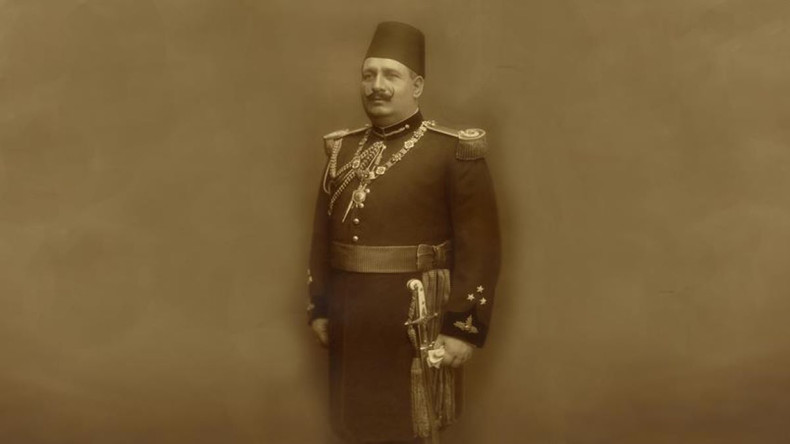Fuad I (Arabic: فؤاد الأول Fu’ād al-Awwal; 26 March 1868 – 28 April 1936) served as the Sultan and subsequently the King of Egypt and the Sudan. As the ninth ruler of the Muhammad Ali dynasty, he ascended to the position of Sultan in 1917, following the death of his elder brother, Hussein Kamel. Following the unilateral declaration of Egyptian independence by the United Kingdom in 1922, he transitioned from the title of Sultan to that of King.
Early Life
Born at Giza Palace in Cairo, Fuad was the fifth son of Isma'il Pasha. During his childhood, he resided with his exiled father in Naples. He received his education at a military academy in Turin, Italy. His mother was Ferial Qadin.
Before his ascension as Sultan, Fuad played a significant role in the establishment of the Egyptian University, now known as Cairo University, serving as its inaugural rector from 1908 until his resignation in 1913. He was succeeded in this role by the then-Minister of Justice, Hussein Rushdi Pasha. Fuad attempted to secure the Albanian throne in 1913, following Albania's independence from the Ottoman Empire; however, he was unsuccessful. At that time, his nephew Abbas II governed Egypt and Sudan, which rendered Fuad's prospects for leadership in his own country unlikely. Additionally, the Albanian descent of the Muhammad Ali dynasty motivated Fuad’s ambitions toward the Albanian throne. Between 1915 and 1918, he also held the position of president of the Egyptian Geographic Society.
Reign
Despite consideration for the Albanian throne, Fuad was ultimately overlooked in favour of a Christian candidate. He assumed the throne of the Sultanate of Egypt upon the death of his brother, Hussein Kamel, in 1917. Following the Egyptian Revolution of 1919, the British government concluded its protectorate over Egypt and acknowledged its status as a sovereign nation on 28 February 1922. Consequently, on 15 March 1922, Fuad issued a decree changing his title from Sultan of Egypt to King of Egypt. In 1930, he endeavoured to reinforce the authority of the Crown by abrogating the 1923 Constitution and instituting a new constitution that restricted the parliamentary role to an advisory capacity alone. Public dissatisfaction with this decision necessitated the restoration of the earlier constitution in 1935.
The 1923 Constitution conferred extensive powers upon Fuad, who frequently exercised his authority to dissolve Parliament. Throughout his reign, cabinet dismissals occurred at the royal discretion, and parliaments rarely completed their four-year terms, as they were dissolved by decree.
Fuad also played a pivotal role in the field of modern Egyptian historiography. He employed numerous archivists to meticulously copy, translate, and organize eighty-seven volumes of correspondence about his paternal ancestors from European archives. Later, his efforts included the collection of historical documents from Egyptian archives, culminating in the establishment of the Royal Archives in the 1930s. Fuad's initiative to portray his ancestors, particularly his great-grandfather Muhammad Ali, his grandfather Ibrahim, and his father, as nationalistic and benevolent monarchs, has had a lasting impact on Egyptian historiography.
